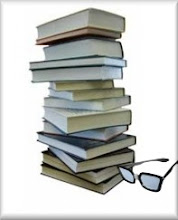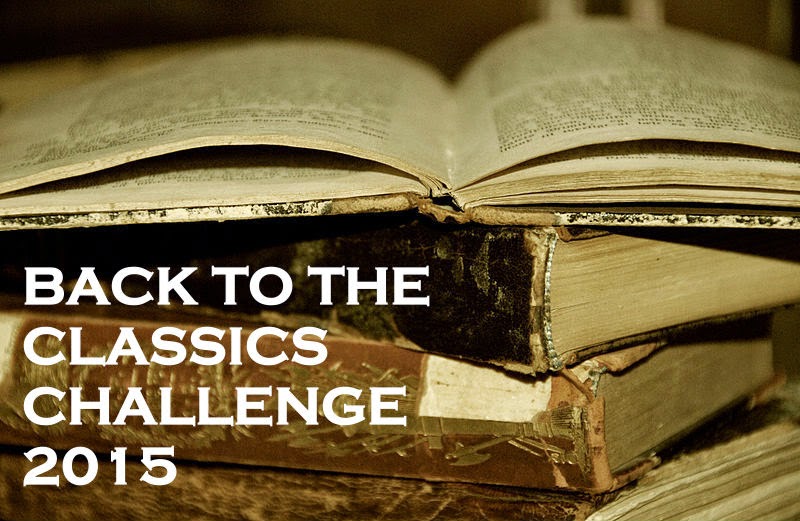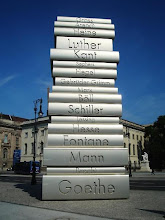 Our greatest heart-treasure is a knowledge that there is in creation an individual to whom our existence is necessary - some one who is part of our life as we are part of theirs, some one in whose life we feel assured our death would leave a gap for a day or two.
Our greatest heart-treasure is a knowledge that there is in creation an individual to whom our existence is necessary - some one who is part of our life as we are part of theirs, some one in whose life we feel assured our death would leave a gap for a day or two.Stella Maria Sarah Miles Franklin is not a name most Americans would be familiar with, but it is instantly recognizable to our friends down under. Under the name of Miles Franklin, she became one of the foremost writers of Australian literature, and even bequeathed the Miles Franklin Award which is annually awarded to the best Australian novel or play. Her first (and best known) novel, My Brilliant Career, was written while she was in her teens, and published in 1901 when she was in her early twenties. It became a smash hit, but due to its many recognizable similarities to her own life, Franklin stopped its publication until after her death in 1954.
The Plot:
Sybylla Melvyn is a headstrong, independent young woman growing up in the Australian bush in the 1890s. After much bad luck in business, her family falls on hard times and Sybylla struggles to adapt to the monotonous "drudgery" of their new life. Relief comes in the form an invitation to stay with her somewhat wealthier grandmother and aunt. There, Sybylla finds much of the freedom and culture that she has always craved, though she is often corrected by her relatives for her "unladylike" behavior. She also meets Harry Beecham, a young landowner who finds her interesting and different from most of the other young women that he has met.
It isn't long before they become the best of friends, and it soon becomes obvious that Harry is in love with her. Sybylla feels only friendship for him, swearing that she is not the type of woman a man can really love, and that she never intends to marry. News then comes that her family is in difficult straits and that she must work as a governess for a neighbor to pay off a debt. Sybylla is whisked away to live in absolute squalor with people who can barely read or write. Every day becomes harder and harder for her to live. Will she be stuck here forever, or will a renewal of Harry's proposal be her best chance for escape?
My Review (Caution - Spoilers):
This was my first taste of Australian literature, and it was overall a good read. There were some terms I had to get used to, like "jackaroo", and also the idea that December is a very hot month down there. But all in all it is kind of like English literature with a big twist.
Overall, I enjoyed the story. Sybylla is an endearing (if, at times, infuriating) character. You can't help but root for her as she struggles to balance her own desires with what the society of the time demanded from young women. And yet, the fact that this story is not just about a teenager, but BY a teenager, makes it seem a little immature. Sybylla's obsessions, especially with her looks, makes the novel's worldview rather immature (though not the writing itself). My other major problem is that I'm a romantic, and I really wanted Sybylla to marry Harry. Heck, I wanted to marry Harry. He's strong, fun loving, intelligent, responsible, caring, patient...what more could you ask for in a guy? Though in the end, I think that Sybylla may have made the right choice for herself, it didn't jive with my own feelings.
But more than a story of a young feminist trying to conquer her own destiny, My Brilliant Career is a love song to the people and literature of Australia. Through the course of the novel, Sybylla develops a sort of love/hate relationship with the drovers, pioneers, and squatters of the outback, at once despising the monotony of their way of life and admiring them for the courage with which they face it. Even when she is living in the comfort of her grandmother's estate, she is never more happy than when she is picking apples in an old dress or helping drovers move their sheep across the land. There are also many times that Franklin expresses the need for true Australian literature, similar to that of Banjo Paterson, Henry Lawson, and C. J. Dennis. Works that would tell Australia's story through the eyes of her children. One has to wonder if Franklin, as she wrote this, ever knew that her own name would one day be as famous as those.
Though there is an unevenness about this novel, it is definitely worth a read. I wasn't overly pleased with the ending personally, but it was an enjoyable story that I had a hard time putting down. If you are looking for a classic taste of the land down under, this is a good place to start.
The Movie:
There is currently one film adaptation of this novel, and that is the 1979 version directed by Gillian Armstrong and starring Judy Davis and Sam Neill. This was a great adaptation that really helped smooth out the story's rougher edges. A wonderful companion to the book.
















No comments:
Post a Comment